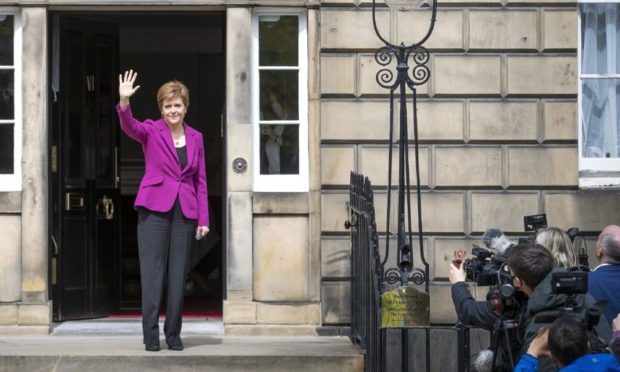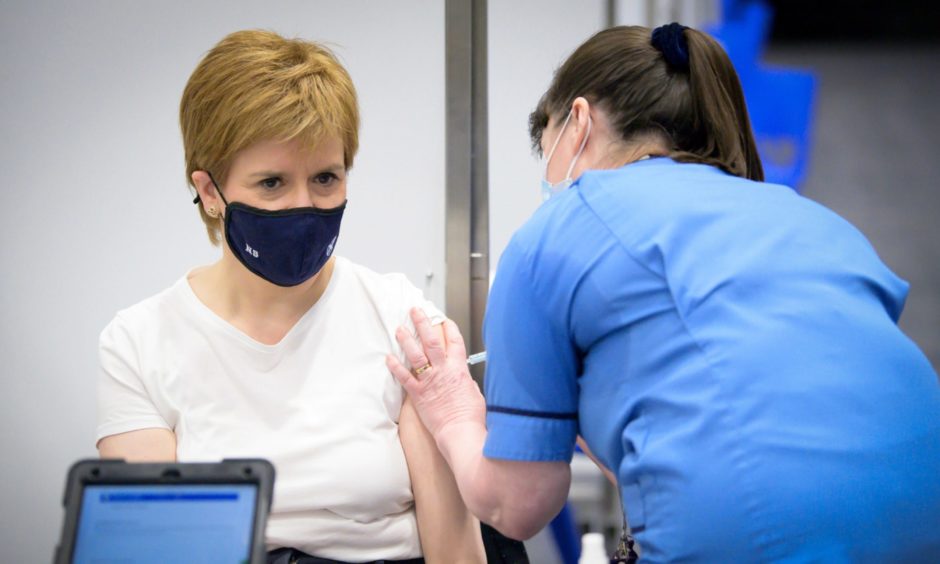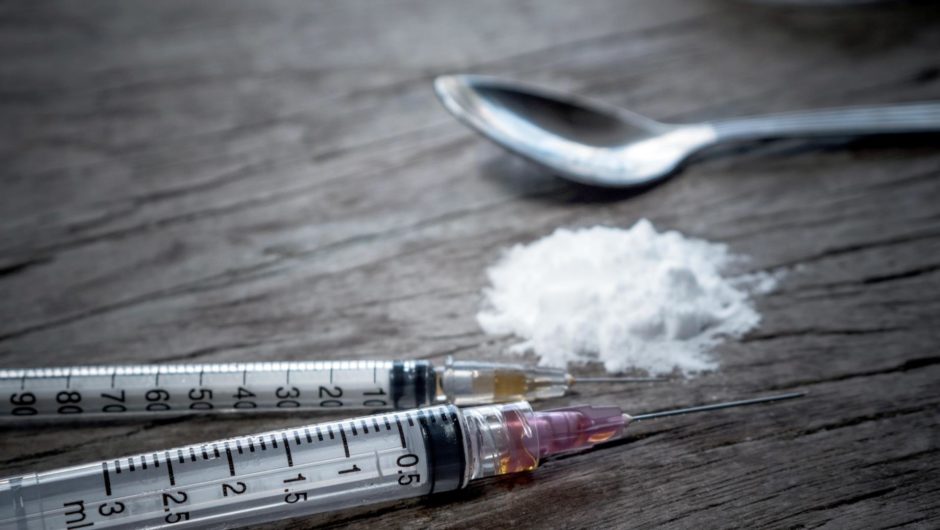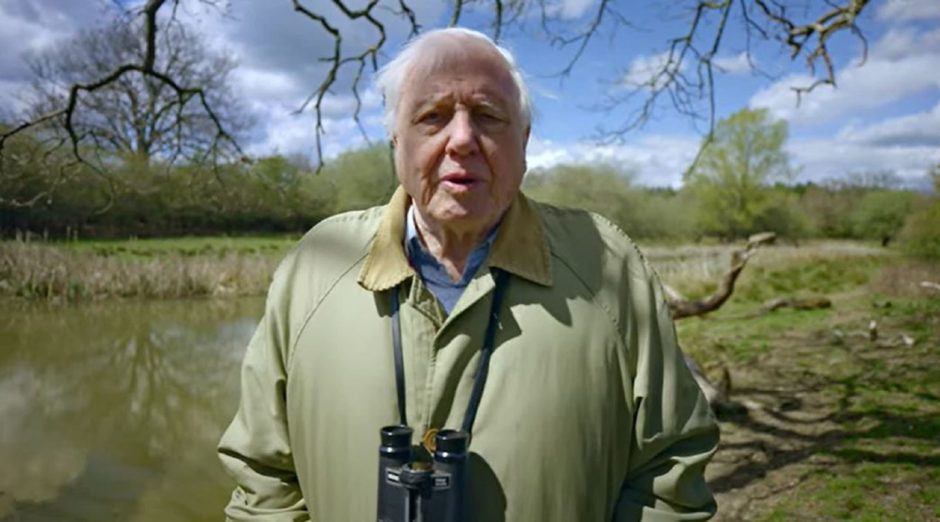The Holyrood election – in which the SNP won a historic fourth consecutive term – has been described by some as the most important since the Scottish Parliament was formed in 1999.
Voters across Scotland went to the polls in an election like no other, as the country begins to emerge from the Covid-19 pandemic and politicians look at how the country makes its first, tentative steps towards recovery.
Newly-elected MSPs are just this week taking part in inductions to their new workplace and learning the rules and rhythms of Holyrood, with a new-term-at-school feel in the air and all the promise that brings.
But already stand-out issues exist that look certain to dominate the next parliament, including domestic issues, from education to tackling the drug deaths crisis, steering the country through its recovery and deciding the country’s constitutional future.
Here, we take a look at six of the big issues likely to shape the next parliament.
Covid-19 recovery
The country is moving back towards a sense of normality as vaccinations continue to be rolled out across the country and coronavirus restrictions significantly relax.
However, the virus continues to rage in other parts of the globe and its impacts will remain widespread and significant across the UK, from resuscitating a battered economy to remobilising the NHS.
Nicola Sturgeon has said recovery from the pandemic must and will be the priority of the SNP for the first 100 days of government and has pledged to steer Scotland out of the Covid-19 pandemic.
Yet Holyrood opponents have criticised the first minister throughout the campaign for her party’s pursuit of independence, claiming it means the SNP cannot possibly be fully focused on rebuilding after Covid-19.
The SNP has pledged to establish a cross-party steering group on Covid recovery and will begin to set up the public inquiry into the handling of the pandemic and so its prominence at parliament is guaranteed to feature prominently for the months and years to come.
Scottish independence
The constitutional question took centre stage immediately in the wake of the SNP’s election victory and throughout the campaign that preceded it.
Ms Sturgeon has warned Prime Minister Boris Johnson that a second independence referendum is now a matter of “when, not if” in their first phone call since Thursday’s vote.
She has pointed to the pro-independence majority in the new parliament – between the SNP and the Greens – in her argument to pursue a second independence vote in the next parliamentary term.
The SNP leader had already promised a new referendum in the first half of that term, despite opposition from the Conservative-led UK Government.
The party’s election victory has now set the scene for a continued stand-off between Edinburgh and London, which will dominate the next parliament, much as it did the last.
Drug deaths
A sense of urgency is needed to tackle Scotland’s drug deaths crisis, with fears the number of fatalities could rise again when new figures are released later this year.
The situation is particularly stark in Dundee, which retained its unenviable position as drug deaths capital of Europe last year.
Statistics showed fatalities from drug abuse increased from 66 in 2018 to 72 in 2019 – the sixth consecutive year deaths have been on the rise in the city.
Across Scotland, 1,264 people died from drug-related causes in the country in 2019 – more than every other European country combined and approximately 3.5 times higher than the rest of the UK.
During the election campaign, First Minister Nicola Sturgeon admitted her government “took its eye off the ball” on drug deaths but insisted she is determined to turn things around in the next parliament.
The failure to tackle the issue already cost SNP MSP Joe FitzPatrick his position, after he resigned as public health minister last year.
SNP MSP Angela Constance was brought in as a designated drug policy minister, indicating the government intends to give the issue renewed focus in the upcoming term.
Indeed, there has already been pressure from newly-elected North East Labour MSP Michael Marra, who, we exclusively revealed, has written to politicians from across the region, urging them to attend a first-of-its-kind cross-party summit to tackle the growing crisis.
Gender reform
Bubbling away is the bitter row over controversial changes to the Gender Recognition Act, which shows no signs of abating in the next parliament.
The SNP has been embroiled in a deeply divisive debate over proposals to allow people to more easily change their legally recognised gender, with concerns raised that the move could impact on women’s rights in a number of areas.
In an extraordinary intervention at the start of the year, the first minister, in an apparently unscripted video, said she had heard reports of “mainly young people in significant numbers leaving the SNP” because they consider the party “not to be a safe, tolerant or welcoming place for trans people”.
She said it “grieves her deeply” they had reached that conclusion and personally pledged to do “everything I can to change that impression and persuade all of you that the SNP is your party and that you should come home where you belong”.
The Scottish Government previously announced work had been “paused” on the gender recognition proposals due to the coronavirus pandemic.
Ministers sought to move towards a “self-declaration model” where people would no longer need to be diagnosed with gender dysphoria or prove they had lived as their acquired gender for two years before having the change legally recognised.
This sparked a backlash from within the party, with 15 senior SNP politicians, including three cabinet ministers at the time and Kate Forbes, who was the finance secretary prior to the election, writing an open letter to the first minister, urging her not to rush the reforms.
Given the delay to the proposals, and Ms Sturgeon’s personal intervention, the issue is likely to be a big talking point in the new parliament.
Climate change
Most people now appreciate the urgent need to tackle climate change, with the issue one particularly close to the heart of many young people across Scotland.
The Scottish Government will be motivated to look like it is taking serious action in this area as the country prepares to host the COP26 summit in Glasgow this year.
All eyes will be on the Scottish city at it hosts the climate conference in November, in which celebrated naturalist and broadcaster Sir David Attenborough will deliver a speech on conservation.
In its manifesto, the SNP commits to “putting Scotland on the right path to meet its emissions reduction targets over the period to 2032 and to achieve a just transition to net zero by 2045”.
The party’s climate change plan, which contains more than 100 new policies, ensures the issue is one that will be under intense scrutiny over the next parliamentary term.
However, alongside the need to tackle climate change, is the transition away from fossil fuels, which has to happen without risking the future of thousands of jobs employed by the North Sea oil and gas sector.
Getting that transition right will require fine tuning and a great deal of collaboration between the industry and governments at both the UK and Scottish level.
Education
The coronavirus pandemic has led to severe disruption in the education of primary and secondary school children the length and breadth of the country.
Getting pupils back to school was always highlighted by the first minister as the most important factor in any review of coronavirus lockdown measures over the last year.
But the proof is in the pudding and all eyes will be on the next SNP government to ensure that the party delivers on the raft of ambitious education proposals contained in its manifesto.
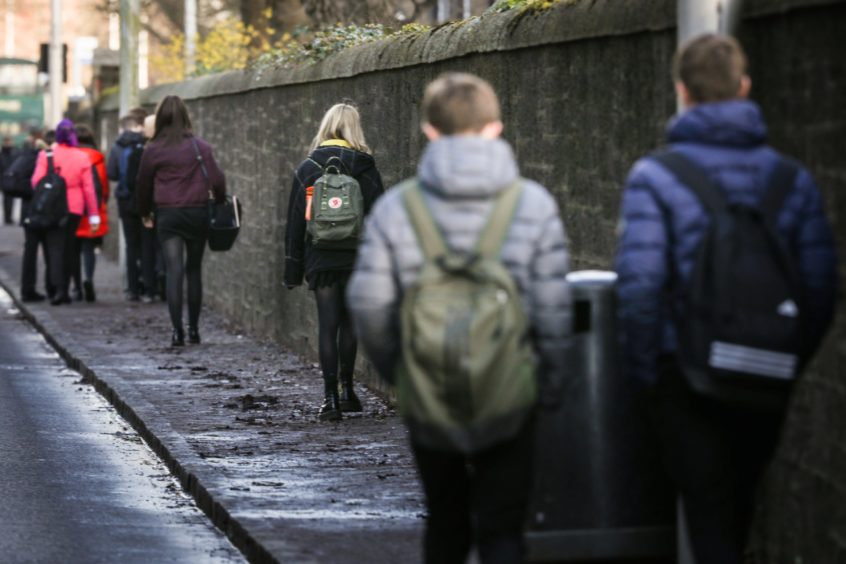
Key among them is the pledge to invest £1 billion to close the school attainment gap between the richest and poorest children.
The last SNP government faced fierce criticism in the last parliament for its failure to close the attainment gap but Ms Sturgeon has identified it as a key aim of her government.
She has refused to give a timescale for this but, prior to the election, promised to work hard through the next parliamentary term if the SNP were returned as the largest party.
While progress has been made in narrowing it, Ms Sturgeon claimed progress was hampered by the coronavirus pandemic.
It remains to be seen how close they will get to reaching this mission in a busy parliamentary schedule.
